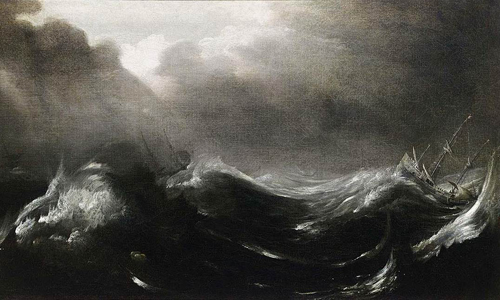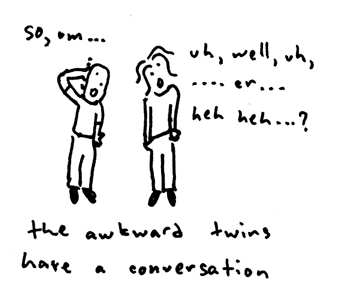
A few weeks ago, an interview question from
Mary-Lue, to Julie at the
Raven Picture Maven brought up a great topic of
discussion. After all of the insightful comments, Julie decided to pose the question to the blogosphere as a whole: Which is of greater necessity - justice or forgiveness? The
Justice and Forgiveness Roundtable discussion was the result. I was moved by all of the posts in response. In fact, I haven't been able to stop thinking about the question. So, when Julie posed a follow on question, I had to participate. I was, frankly, completely intimidated by the posts I read last week and I am NOT easily initimdated. But I'd still like to offer my views on the subject. This week the questions are about choice:
I think we need to next talk about choice. You asked earlier which we would choose. But deeper, right, is how and why we choose.
And what choice really means. Do we all have the same ability to choose? Is it really a present tense concept?
How do we choose anything (forgiveness, justice, compassion)if we don't know why or how choice is really made?I'm sure I've overlapped the questions a bit, but I'm sure you will all forgive me. I'm also a bit late, but I hope I don't need to remind you that
real moms procrastinate!
-------------------------------------------------------------------------------------------------
I have always found that mercy bears richer fruits than strict justice.
- Abraham Lincoln
Justice.When I think of justice, I think of the rule of law. I'm a lawyer, how could I not? But justice is not necessarily something we choose, and when we do choose justice, justice is not necessarily served.
When I think of justice, my mind does not jump first to my more recent legal practice, but to the victims of domestic and sexual violence that I counseled during and after college as a volunteer for the YWCA. I spoke with hundreds, if not thousands, of men and women anonymously over the phone. Some were truly looking for a way out and a way forward, many weren't ready for that yet and just wanted someone to listen. As heartbreaking as those many anonymous callers were, those that I met in person still haunt me. As an advocate, I met victims in the emergency room after physical and sexual assaults. I gave them their options for restraining orders, prosecution, housing and counseling, and I listened. I hugged some of them as they cried. I watched them as they stared blankly into space. I held their hands through medical exams.
Lady Justice is pictorially represented in nearly every courtroom in the United States. She carries a balanced scale in one hand, a sword in the other, and wears a blindfold. Lady Justice is intended to represent the fair and equal administration of the law, without corruption, avarice, prejudice, or favor. But justice is not truly blind. I think most reasonable people can agree simply by looking at the prison population and sentencing statistics in the U.S., that justice sees race, income, social status, and gender far too clearly. There is often no fair and equal administration of justice for perpetrators of crimes.
Back to the victims. Some of the victims I met chose justice. Police were called, restraining orders were issued, arrests were made. And then the blind Lady Justice took over, in the form of brutal interviews, painful cross-examinations, and, usually, a plea bargain and a slap on the wrist. There is often no justice for victims of crime, even with a full sentence.
How about murder? Is putting a killer to death justice? Some would say yes, but can it ever really make the scales balance again? No. No, it can't.
I can see both sides of the scale.
The weak can never forgive. Forgiveness is the attribute of the strong.
- Mahatma Ghandi
Forgiveness.I have less to say about forgiveness, but that doesn't make it less important or necessary. Forgiveness is something we must consciously choose. And it's not easy. I can't help but think of all of the victims in the Virginia Tech shootings last week. How will their families forgive? I have difficult forgiving the guy who cuts me off in traffic or my husband for hogging the bed, how on earth could I ever forgive a crime so horrible? I don't know. But I sense that the only true way to internal balance and calm is forgiveness.
Choice.But I still haven't really addressed Julie's questions above regarding how and why we choose and if we all have the same ability to do so. I "choose" to see this question less in terms of free will and more in terms of class, culture, and society. How and why we choose to forgive or to seek justice I believe is largely a product of our upbringing and our experiences.
Some people see justice and the law in terms of black and white. If it's wrong, it must be punished without consideration of mercy or extenuating circumstances. But people who render judgment in such a stark manner cannot see themselves as wrongdoers, feeling safe and secure in their world view by happy accident of birth. They see the world as Us and Them. From my vantage point, people who can't see shades of grey are broken in some way. They can't see themselves choosing the wrong path. They lack the ability to show mercy, or are perhaps too angry to care.
These people will never choose to forgive and may in fact state that they choose
not to forgive. But the truth may be that they cannot, because of who they are,
ever choose forgiveness.
Labels: Roundtables

















































